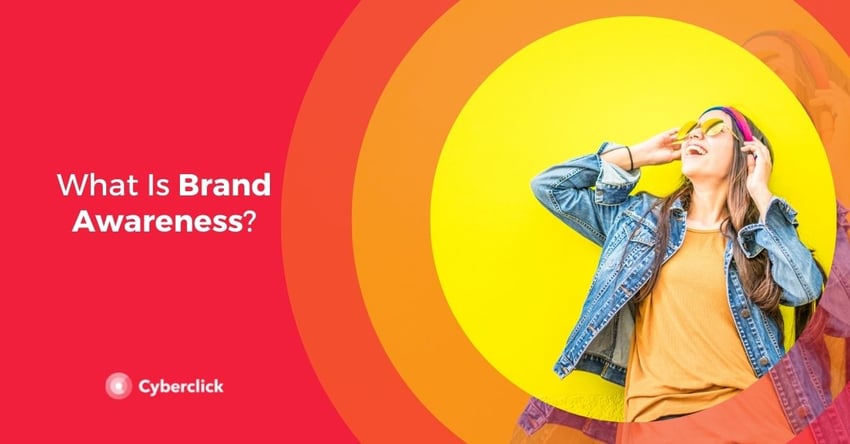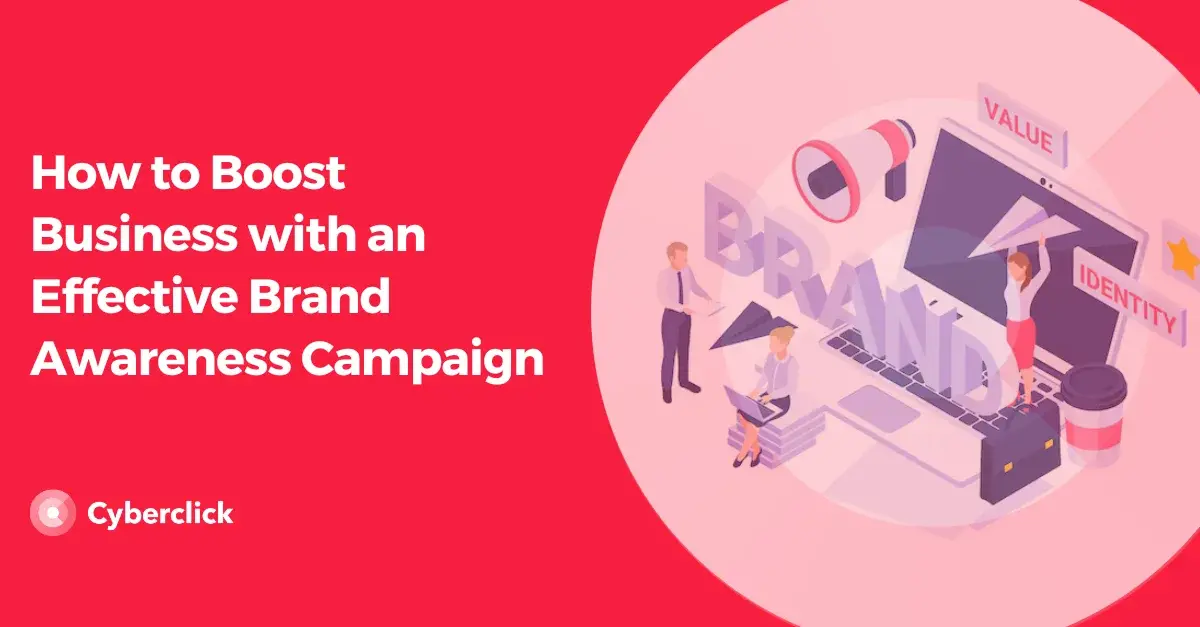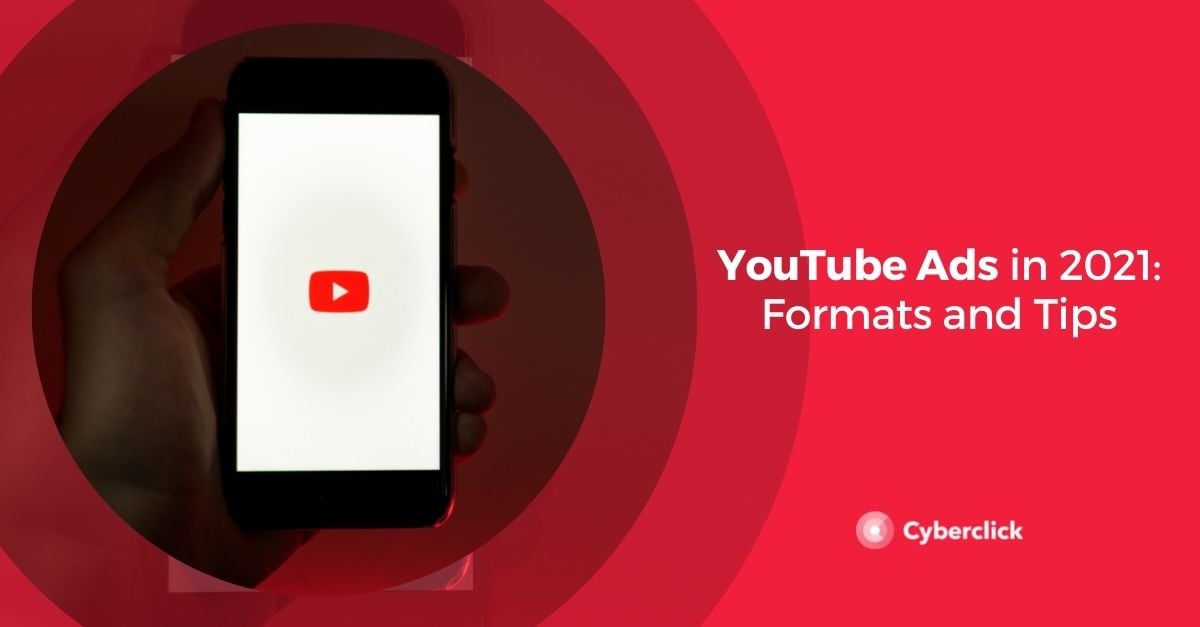Implementing an effective digital marketing strategy is vital for creating brand awareness. It can help consumers get to know your brand, develop trust and loyalty, and create positive associations with your products or services.
But what is brand awareness, exactly? We'll break that down as well as why brand awareness is important for your business. We will also share some tips to help you raise awareness of your brand and expand your reach and influence.

What Is Brand Awareness?
Brand awareness is the degree to which consumers recognize and remember your brand. The more brand awareness you have, the more people will be familiar with your products, messaging, and logo. Although a valuable tool for any business, brand awareness campaigns are especially important for brands that are launching on the market for the first time as they can help you make a name for yourself and get noticed.
Think of brand awareness as the promotion of your business’s personality. You want to create positive associations with your brand based on emotional connections. It’s all about using digital marketing techniques to communicate who you are, what you represent, and what you have to offer. This will help you build a solid brand reputation that cements your position in the market as a trusted brand that consumers return to time and time again.
Why Is Brand Awareness Important?
Brand awareness is important for a number of reasons such as:
- Communicating your value to consumers and helping them understand and recall your brand and products/services.
- Building emotional connections with your target market and bridging the gap between brand and consumer.
- Demonstrating your brand’s “personality”.
- Clarifying and communicating your business values, mission, vision, and purpose
- Building consumer trust and loyalty.
- Establishing positive associations with your brand.
- Building brand equity.
- Becoming a well-known brand, both online and offline.
Let’s take a look at a few of these in more detail.
Brand Awareness Creates Association
Nothing demonstrates effective brand awareness more than when a brand becomes so well known that it replaces the generic term for something. What do we mean by this?
There are countless examples that most of us probably use every day. Think Google, Hoover, Xerox, Band-Aid and Coke. Although we often use these words as verbs or nouns, they are actually brand names that have become so popular that they have, generally speaking, replaced official generic terms and they are used even when we are not referring to the specific branded product (in this case, search engine, vacuum cleaner, photocopier, bandage, and soda).
This demonstrates the true power of brand awareness. When done effectively, it can create subconscious associations among consumers. This is the ultimate goal of brand awareness.
Brand Awareness Fosters Trust & Loyalty
Aside from raising awareness and creating positive associations, brand awareness can also help you foster consumer trust and loyalty. When it comes to consumers, brand trust and loyalty is everything.
For one thing, brand awareness campaigns help you put a face and personality to your brand. They help consumers understand who you are, how you operate, and what values you stand for. All this helps your brand come across as relatable and “human.” Plus, once a consumer has decided that they trust your brand, they are far more likely to come back and make repeat purchases, benefitting the bottom line of your business.
Brand Awareness Builds Brand Equity
Brand awareness can also help you build positive brand equity.
What does this mean?
Brand equity is the social value of a well-known brand name. The more positive experiences a consumer has with your brand, the more trust and loyalty they will develop, and the more likely they are to attribute a higher perceived value to your products and services.
Once they are aware of the value your brand represents, they are more likely to come to you next time they need to make a purchase, as they associate your brand with value for money. They are also far more likely to recommend your brand to family and friends, furthering your reach and expanding your brand awareness (and, in turn, increasing your brand equity).
How to Increase Brand Awareness
Building brand awareness takes time and patience. It results from the accumulation of a number of targeted campaigns and strategies that extend far beyond simple customer acquisition techniques. You can’t just post a few ads on Facebook and wait for your brand to explode. It’s about creating a long-term strategy that’s focused on building consumer trust based on a solid brand reputation.
Here are a few effective strategies to help you build enough brand awareness to stand out from the crowd.
Tell a Story
Storytelling and building a narrative can be a great way to add a personality to your brand and raise awareness. A story gives your audience something they can relate to, and it helps to humanize your brand.
The right story can facilitate an emotional response and establish meaningful connections. If your story resonates, it can boost your brand awareness and help you stand out from the masses.
You can pick any narrative, as long as it is authentic. Perhaps it’s the story of your founder, or how your brand came to be. Whatever you choose, make sure it is believable and relatable so that it piques the interest of your target market. And make sure you weave your narrative into every touchpoint. This includes all marketing campaigns, ads, and customer interactions.
Give your Brand a Personality
Aside from promoting your narrative, you also need to give your brand a “personality”.
A brand without any personality is boring, and it won’t appeal to many people, let alone your target audience. However, if you can create a brand personality that resonates with your customers, one based on characteristics that people value and can relate to, then your brand is far more likely to stand out from your competitors.
Personality traits that work well with brands include authenticity, sincerity, humor, and friendliness. However, the personality you craft will largely depend on the demographics of your target audience, and the products or services that you are selling. What traits do your consumers value? Do they expect a serious brand, or a friendly, approachable one? If you’re selling medical equipment, for example, you might pick more of a serious, competent, and professional personality. If you are selling beauty products, then your target audience might relate more to an exciting, friendly, and imaginative personality.
Think about your target market and the traits that would instil the most trust and confidence in them, then make sure your personality is consistently conveyed at all consumer touchpoints.
Be Active on Social Media
Finally, once you have defined your narrative and your brand’s personality, you need to make sure you are as active as possible on social media. Share relevant content from multiple platforms and interact frequently with your followers. Use hashtags to gain visibility and make sure the content you post provides your followers with added value. Join social media groups and participate in conversations. Engage with your followers and with other brands in your community.
All this will keep your brand present and relevant and it will help you reach a larger audience, which will further increase your brand awareness.
Inbound Marketing Strategist en Cyberclick. Especializado en HubSpot, lidera las estrategias de inbound marketing de los clientes de Cyberclick. Oier es un apasionado del marketing, la creatividad y el audiovisual y es licenciado en Bellas Artes con un máster en Artes Digitales.
Inbound Marketing Strategist at Cyberclick. He leads inbound marketing strategies for Cyberclick's clients, with experience in CRM management and HubSpot. Oier is passionate about marketing, creativity and audiovisual content and he holds a degree in Fine Arts with a master's degree in Digital Arts.






Leave your comment and join the conversation